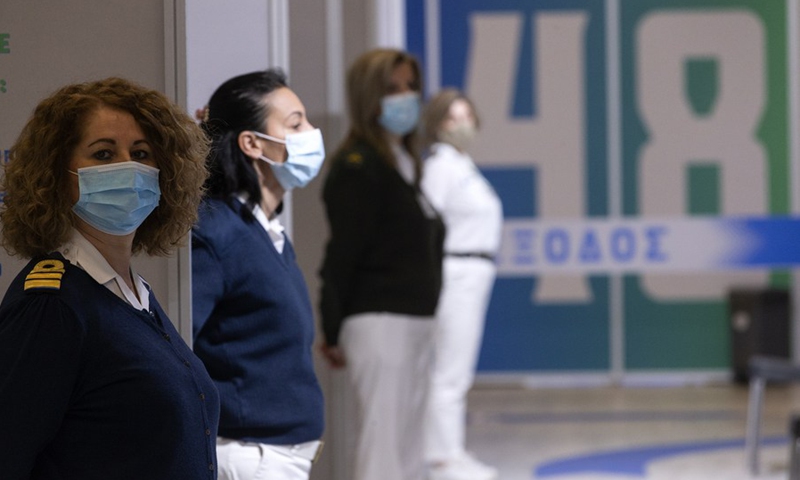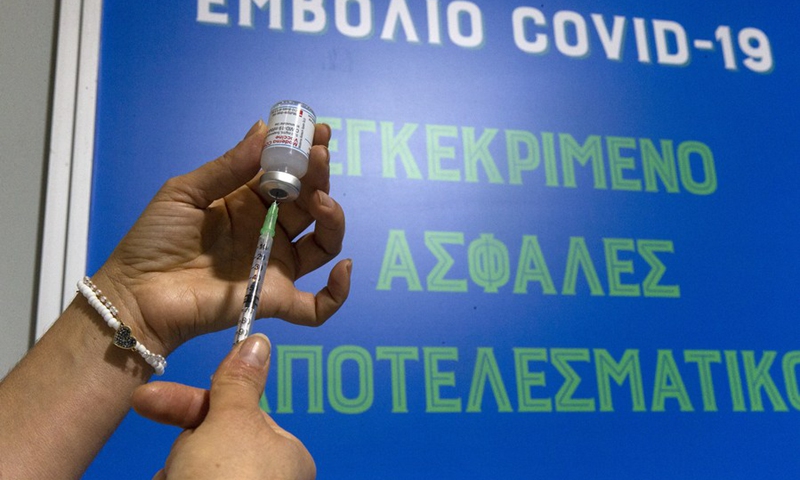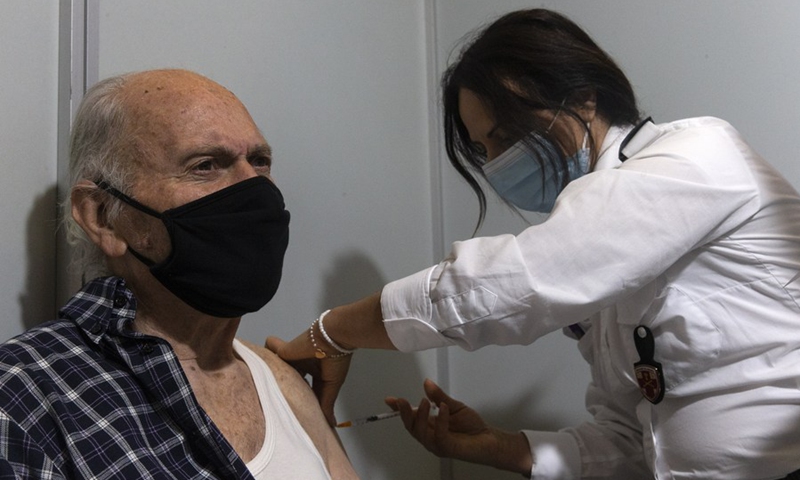Greece implements emergency measures to support healthcare system as COVID-19 cases skyrocket

Army medical workers are seen at a corridor of a new COVID-19 vaccination center in Athens, Greece, Feb. 13, 2021. (Photo: Xinhua)

A medical worker prepares a COVID-19 vaccine at a new COVID-19 vaccination center in Athens, Greece, Feb. 15, 2021. (Photo: Xinhua)

A man receives COVID-19 vaccine at a new COVID-19 vaccination center, in Athens, Greece, Feb. 15, 2021.(Photo: Xinhua)
Greek officials activated an emergency plan on Wednesday to support the healthcare system in the country -- and in the Attica region particularly -- in response to a steep spike in confirmed COVID-19 cases.
The National Public Health Organization (EODY) confirmed 2,702 new coronavirus infections in the past 24 hours, a negative record for 2021, Health Minister Vassilis Kikilias told a televised press conference.
Public hospitals are under enormous pressure to cope with increased admissions, especially in the Attica region where half of Greece's population lives, he explained.
Currently in Attica 289 of the 319 intensive care unit beds available for COVID-19 patients and 1,528 out of the 2,112 beds in ordinary hospital rooms are occupied, he said.
Since Tuesday, 394 new coronavirus patients have been admitted to hospitals nationwide, hence the government's emergency plan.
Two big private hospitals in Athens will now operate as part of the public health system treating non-COVID-19 cases to ease the pressure on state hospitals, while private clinics will also offer services to further support the system, Kikilias said.
"Do not let your guard down, because we are facing the most difficult phase of the pandemic," the minister stressed.
In order to control the further spread of the virus, the authorities have also tightened restrictions on movement from Thursday until March 16.
Greece has been in a nationwide lockdown since Nov. 7, 2020. A night-time curfew is in force, the country's regions are classified as "red" (high alert) or "deep red" (very high alert) zones and citizens must send a text message (SMS) or fill in a document to justify any exit from their homes. Otherwise, they face heavy fines.
As of Thursday this week, citizens will be allowed to go to supermarkets, bakeries or banks only within a radius of two kilometers from their homes and they can no longer use their cars to go to a park or the seaside to exercise or walk a pet. They must move on foot or by bicycle, officials told the press conference.
To date, Greece has a cumulative total of 197,279 confirmed COVID-19 infections since the first case was diagnosed on Feb. 26, 2020 in the country.
The total of casualties stands at 6,597 after 40 deaths were registered in the past 24 hours.
Currently, 431 patients are on ventilators across the country.
Kikilias asked citizens to be patient and not to lose hope as the vaccination campaign continues. This week, the number of administered doses in the country is expected to surpass one million.
As the world is struggling to contain the pandemic, vaccination is underway in an increasing number of countries with the already-authorized coronavirus vaccines.
Meanwhile, 258 candidate vaccines are still being developed worldwide -- 76 of them in clinical trials -- in countries including Germany, China, Russia, Britain, and the United States, according to information released by the World Health Organization on Tuesday.
